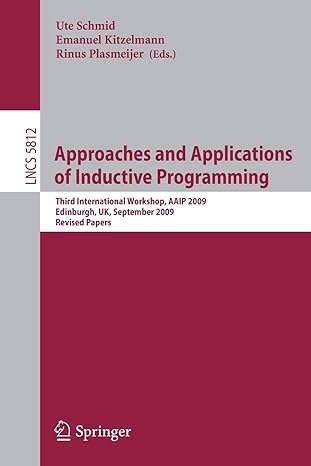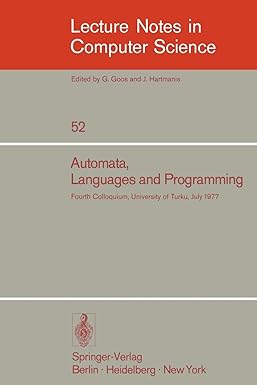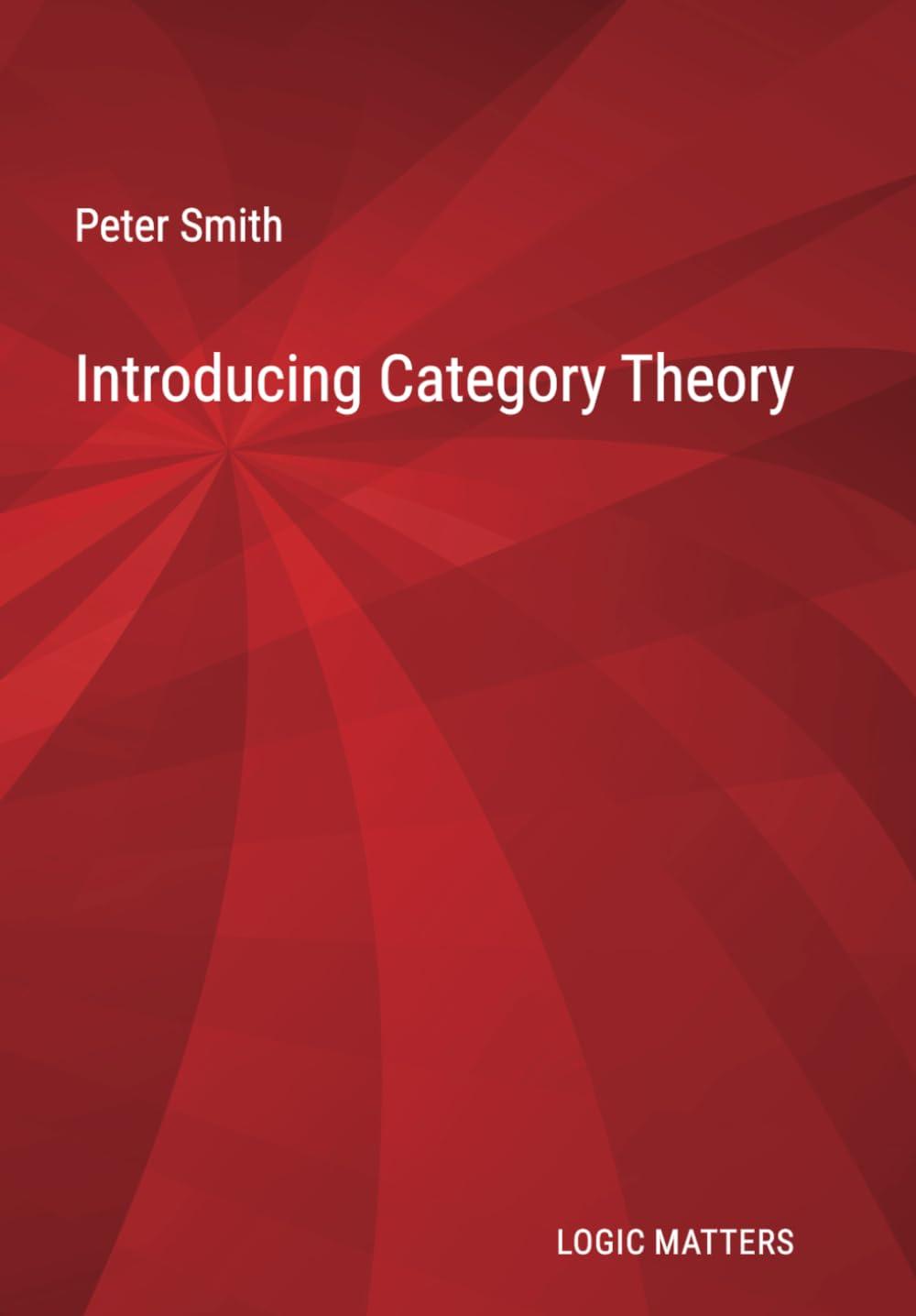Go back


Approaches And Applications Of Inductive Programming Third International Workshop AAIP 2009 Edinburgh UK September 4 2009 Revised Papers LNCS 5812(1st Edition)
Authors:
Ute Schmid ,Emanuel Kitzelmann

Cover Type:Hardcover
Condition:Used
In Stock
Shipment time
Expected shipping within 2 DaysPopular items with books
Access to 30 Million+ solutions
Free ✝
Ask 50 Questions from expert
AI-Powered Answers
✝ 7 days-trial
Total Price:
$0
List Price: $5.06
Savings: $5.06(100%)
Book details
ISBN: 3642119301, 978-3642119309
Book publisher: Springer
Get your hands on the best-selling book Approaches And Applications Of Inductive Programming Third International Workshop AAIP 2009 Edinburgh UK September 4 2009 Revised Papers LNCS 5812 1st Edition for free. Feed your curiosity and let your imagination soar with the best stories coming out to you without hefty price tags. Browse SolutionInn to discover a treasure trove of fiction and non-fiction books where every page leads the reader to an undiscovered world. Start your literary adventure right away and also enjoy free shipping of these complimentary books to your door.
Book Summary: Inductive programming is concerned with the automated construction of decl- ative-often functional -recursiveprogramsfromincompletespeci?cationssuch as input/output examples. The inferred program must be correct with respect to the provided examples in a generalizing sense: it should be neither equivalent to it, nor inconsistent. Inductive programming algorithms are guided explicitly or implicitly by a language bias (the class of programs that can be induced) and a search bias (determining which generalized program is constructed ?rst). Induction strategiesare either generate-and-testor example-driven.In genera- and-test approaches, hypotheses about candidate programs are generated in- pendently from the given speci?cations. Program candidates are tested against the given speci?cation and one or more of the best evaluated candidates are - veloped further. In analytical approaches, candidate programs are constructed in an example-driven way. While generate-and-test approaches can - in prin- ple - construct any kind of program, analytical approaches have a more limited scope. On the other hand, e?ciency of induction is much higher in analytical approaches. Inductive programming is still mainly a topic of basic research, exploring how the intellectual ability of humans to infer generalized recursive procedures from incomplete evidence can be captured in the form of synthesis methods. Intended applications are mainly in the domain of programming assistance - either to relieve professional programmers from routine tasks or to enable n- programmers to some limited form of end-user programming. Furthermore, in future, inductiveprogrammingtechniquesmightbe appliedtofurtherareassuch as support inference of lemmata in theorem proving or learning grammar rules.
Customers also bought these books
Frequently Bought Together
Top Reviews for Books
Gazi Refai
( 4 )
"Delivery was considerably fast, and the book I received was in a good condition."










